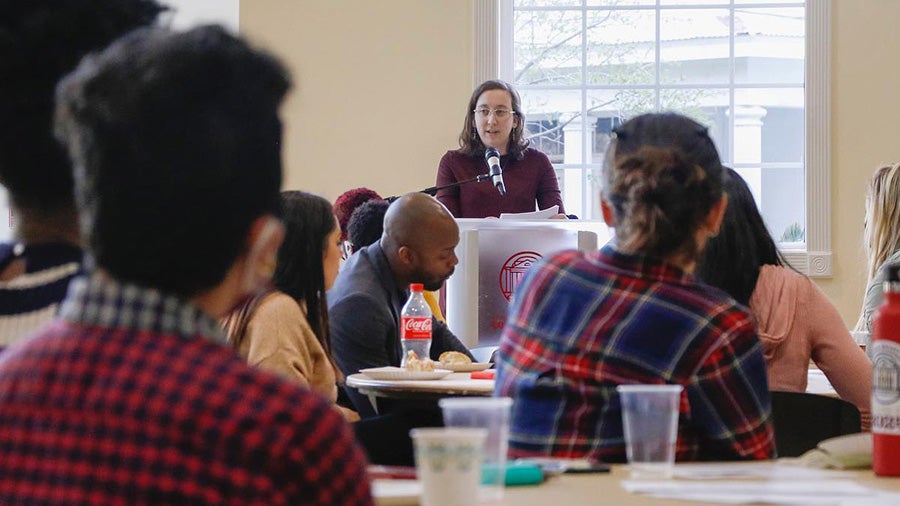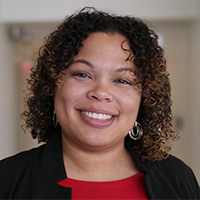
The primary goal of the Juvenile Solitary Confinement Project is to abolish the practice of placing children in solitary confinement. Solitary confinement is a pervasive practice in Florida. In Florida, approximately 25% of the children in adult prisons and jails are in solitary confinement on any given day. The Solitary Confinement Project represents two clients who were in solitary confinement for over seven years. Solitary Confinement harms the dignity of the child and violates Article 37 of the Convention of the Rights of the Child.
Through legislative advocacy and education, law students in the Solitary Confinement Project advocate for the abolishment of solitary confinement. Law students research and draft bills, testify at legislative committee meetings, and work with bill sponsors and non-governmental organizations to abolish the practice. In addition, law students try to nudge culture by educating the public about the practice. Law students write op-ed pieces against the practice and create videos and podcasts telling child survivors’ experiences of solitary confinement.
 Interview with Catherine Jones: My experience in Solitary Confinement
Interview with Catherine Jones: My experience in Solitary Confinement
News, Events & Student Scholarship

Courtesy of Andrea Costello.
- “Solitary Confinement in the Sunshine State: Exposing and Combating the Harms and Realities of Isolation in Florida’s Prisons” | April 19, 2024
- “Realities of Children in Solitary Confinement” Panel Discussion | March 1, 2022
- In February 2022, three Public Interest Law Center students published opinion pieces in major newspapers across Florida:
- “Florida Should End Solitary Confinement of Children” | Emily Wood, Tampa Bay Times, February 28, 2022
- “Remove Our Children From Solitary Confinement” | Precious Chavez, Tallahassee Democrat, February 27, 2022
- “Ban Solitary Confinement for Children” | Olivia Ingram, Orlando Sentinel (February 24, 2022)
- "A Bill Limiting Youth Solitary Confinement In Florida Failed this Year. Here’s what the Practice Entails" | NPR WUFT, May 18, 2021
- FSU Students on Front Lines of Fight against Solitary Confinement for Incarcerated Youth | Tallahassee Democrat, March 19, 2019
- "My View: End Harmful Solitary Confinement of Children" | Daniel Clibbon, Tallahassee Democrat, February 6, 2018
- Students Engage in the CRC [Constitutional Revision Commission] Process | The Florida Bar News, December 1, 2017
Law Students - How to Apply for Enrollment
Students interested in enrolling in the Juvenile Solitary Confinement Project should complete the PILC application and contact Professor Annino to schedule an interview. There is one prerequisite for this clinic: the Children Advocacy Clinic course. Certified Legal Intern status is not required.
Resources on Solitary Confinement
- SB 1696 Annual Study of the Use of Restrictive Housing (2024)
- SB 1674 Restrictive Confinement of Inmates (2024)
- SB 206: Inmate Confinement (2022)
- SB 1934: Solitary Confinement of Incarcerated Youths (2022)
- SB 570: Youth in Solitary Confinement (2021)
- HB 377: Youth in Solitary Confinement (2021)
- SB 542: Inmate Confinement (2021)
- SB 550: Youth in Confinement (2021)
- SB 436: Youth in Confinement (2020)
- HB 347: Youth in Confinement (2020)
- SB 228: Youth in Solitary Confinement (2020)
- HB 165: Youth in Solitary Confinement (2020)
- SB 762: Inmate Confinement (2020)
- Harvard et.al v. Mark Inch, Florida Department of Corrections, First Amended Class Action Complaint for Declaratory and Injunctive Relief. Case No. : 419-cv-00212-MW-CAS, US District Ct, Northern District of Florida. (7/2/2019)
- HB 755: Youth in Solitary Confinement (2019)
- SB 1402: Inmate Confinement (2019)
- SB 110: Youth in Solitary Confinement (2019)
- SB 624 Youth in Solitary Confinement (2019) Montford
- SB 812 Youth in Solitary Confinement Reduction Act (2013) Gibson
